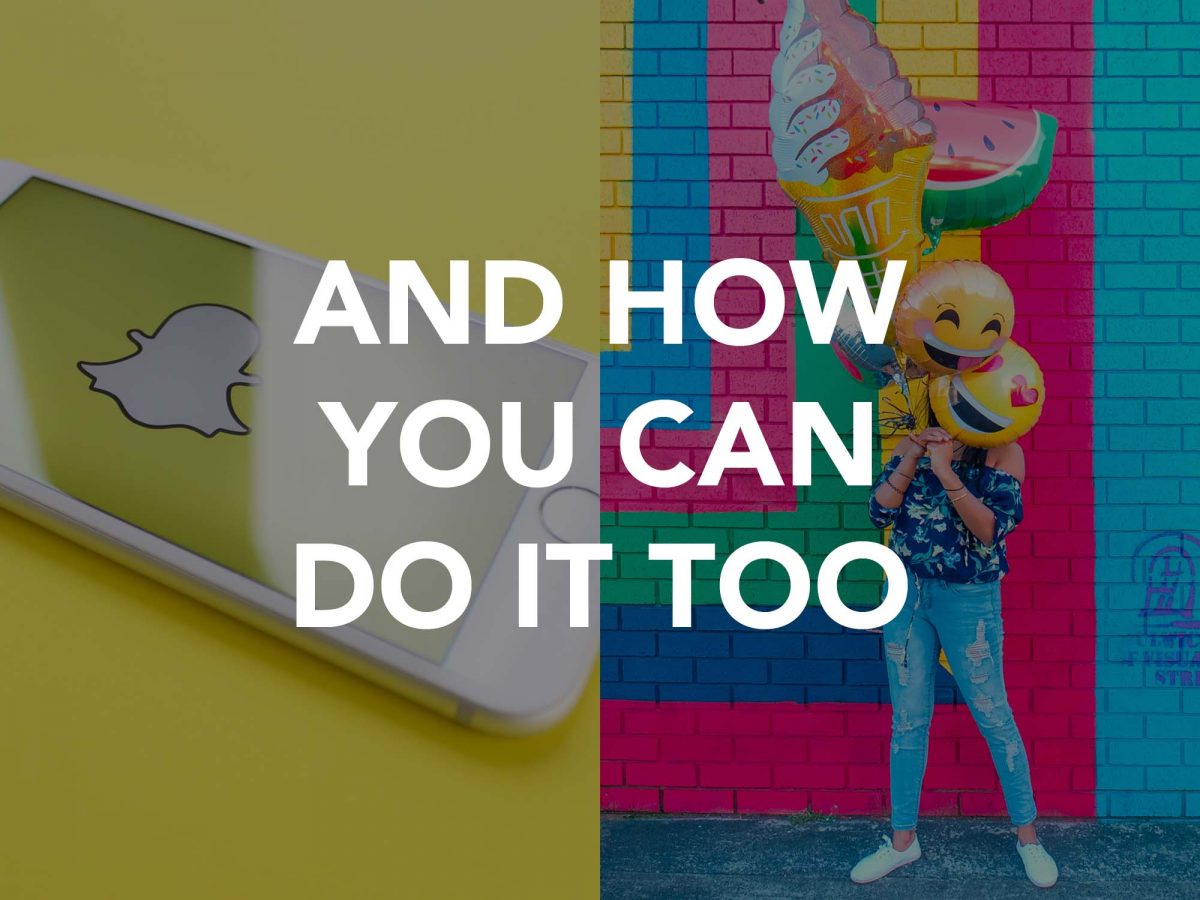As promised yesterday, the saga idea starts as of now. I was saying I’ll pick older articles of mine and continue with part 2, part 3 etc. Hoping that one day I’ll get to part 14 — and there’s a chapter for a future book.
In one of a project we’re working on right now, we were looking for a way to create an experience on top of the utilitarian value that the company produces. Something that can be trivially named “a mini-game” but it’s actually more than that.
Who’s done it before — and actually did it well? Snapchat. You’ve heard of the app, you’ve heard it’s used mainly by a young audience of teenagers and 20-something people. You’ve heard of their market cap, their IPO (almost) two years ago.
Here’s something you might have not heard of
The “streak” effect. Scroll below if you know what they are. To make it clear for all readers, through Snapchat you can send a snap — i.e. a picture that can be seen in a span of 10 seconds. To make things
What’s a streak, you may ask? You and the other person send each other a snap within 24 hours and that counts as a day in your streak. Do it for 3 days and both you and that person will have a fire next to each other’s name, along with the number of consecutive days you’ve been sending snaps. ?
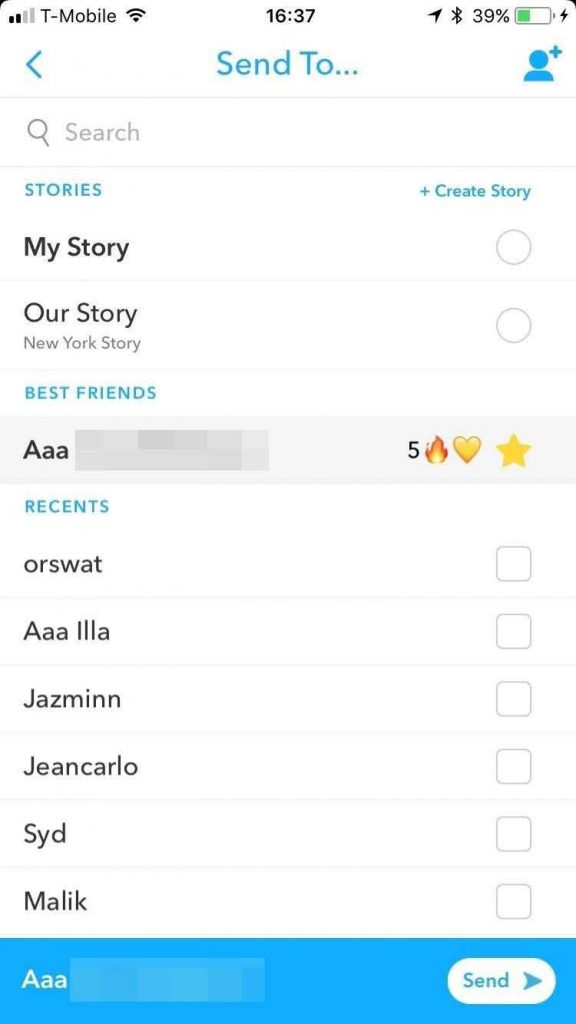
That’s a streak. It used to be that after 100 days, you’d get the ?emoji — and that was a milestone.
Think of it as a reward. Besides the streak, there are “rewards” (i.e. displaying emojis next to the contact’s name) for:
- best friend — top contact for each other
- best friend for 2 weeks
- best friends for 2 months
- some other stuff like you’re their best friend but you’re not theirs
Ok. Why would I care about this? And actually why do they care?
If the 24-hour deadline is closing in and you’re about to lose a streak, this thing pops up:
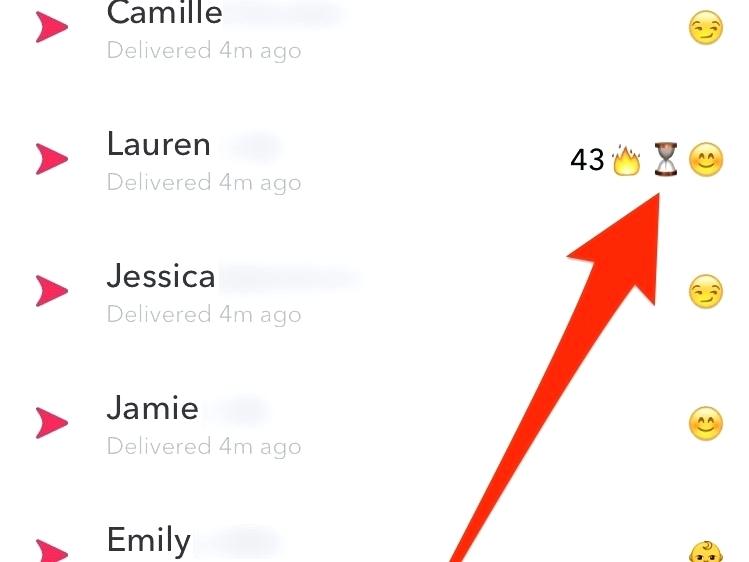
That hourglass means you better send each other that snap to keep the streak alive. I’m not even joking, losing a streak can hurt a friendship. Eventually, when you become a black-belt, your Snapchat can look like this:
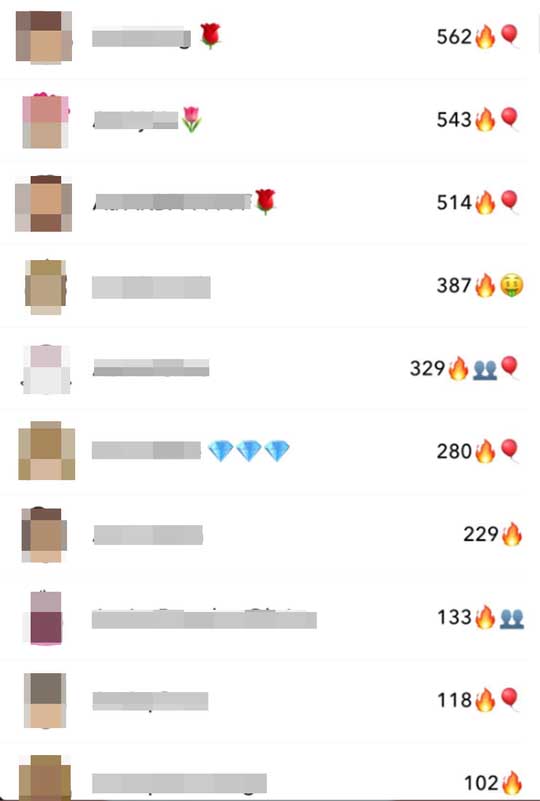
Here’s where I actually bring value: the social effect
When “I” is mentioned, I’ll play the character of a millennial, all right?
Effect #1
It gets crazy. People go on vacation to a place where they won’t have internet. The streaks are in trouble, right? You’ll be gone for a week so no 24h intervals to send each other snaps.
The solution? I, the one who goes on vacation, will give my account and password not to one, not to two but to three or more people (I don’t want to risk it) so that my friends can keep my streaks alive.
Effect #2
I’ve got my close friends (say there are 3) to be doing streaks. I want to have that nice-looking Snapchat so I’ll simply ask people
Do you do streaks?
That, my friends, means “Do you want to entertain a relationship out of which we both have to benefit through having a streak alive, even though you and I don’t necessarily have to talk?”
I’m not joking, some friendships are kept alive by that streak. It can get to a point where millennial 1 randomly meets millennial 2, they get each other’s Snapchat and even though the relationship doesn’t go very deep, they were both doing streaks before so one more would be mutually beneficial.
Effect #3
The longer the streak, the stronger our friendship is. If we get to a year, we’re very good.
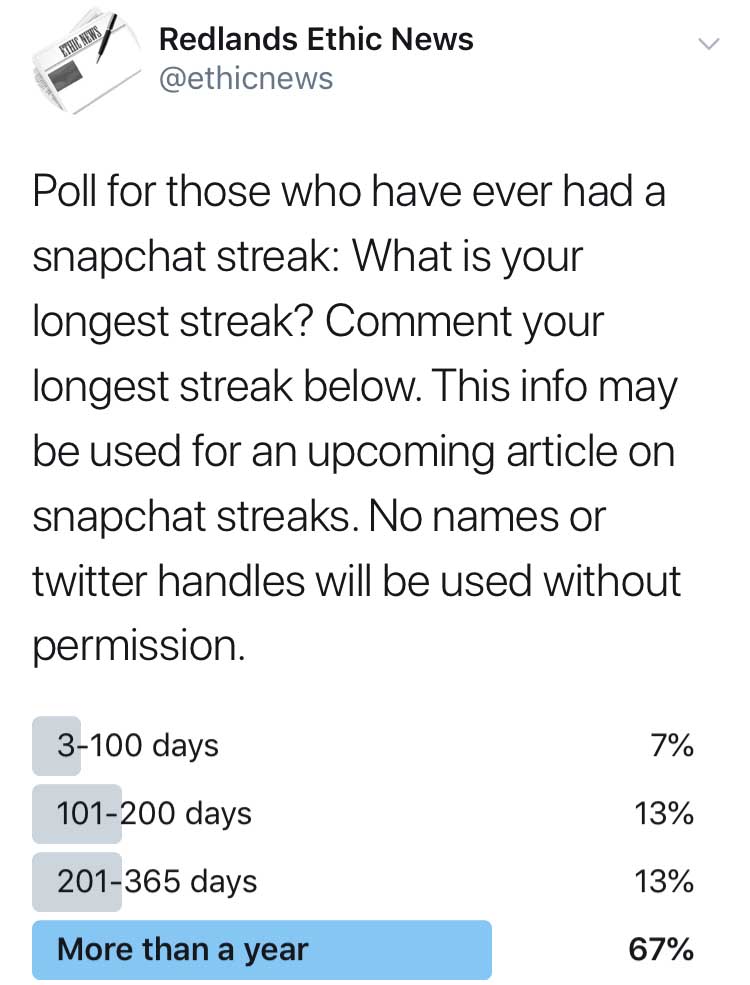
Effect #4
Streaks are so important that you can make a formal complaint to the company. That’s right.
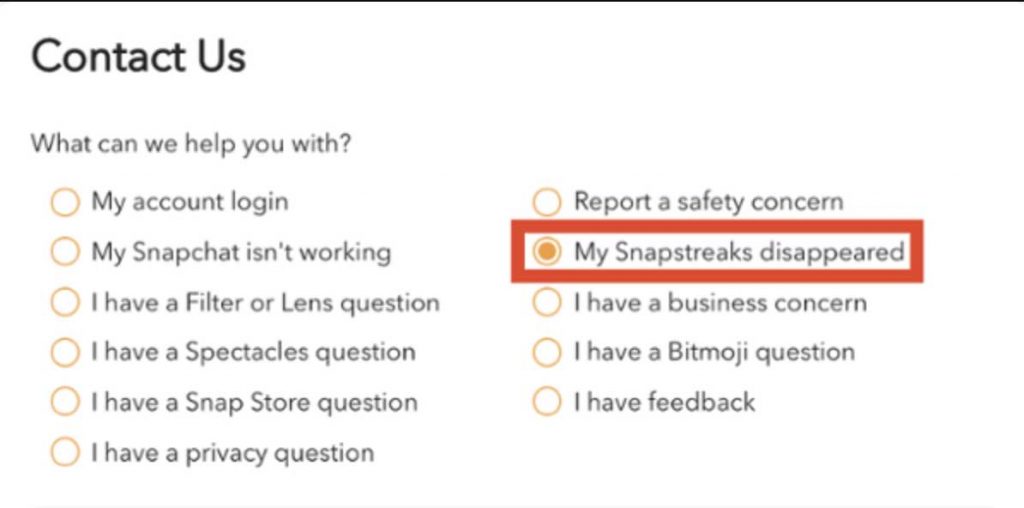
Snapchat made a special contact form bullet where you can get your streak back. I can’t imagine the demand they were having before that required them to put that out.
Effect #5 — Culture Manifesting Itself
Streaks are without a doubt part of the culture. Just like in the Netflix “skip intro” post I’ve linked some content made by people, I’ll do so here.
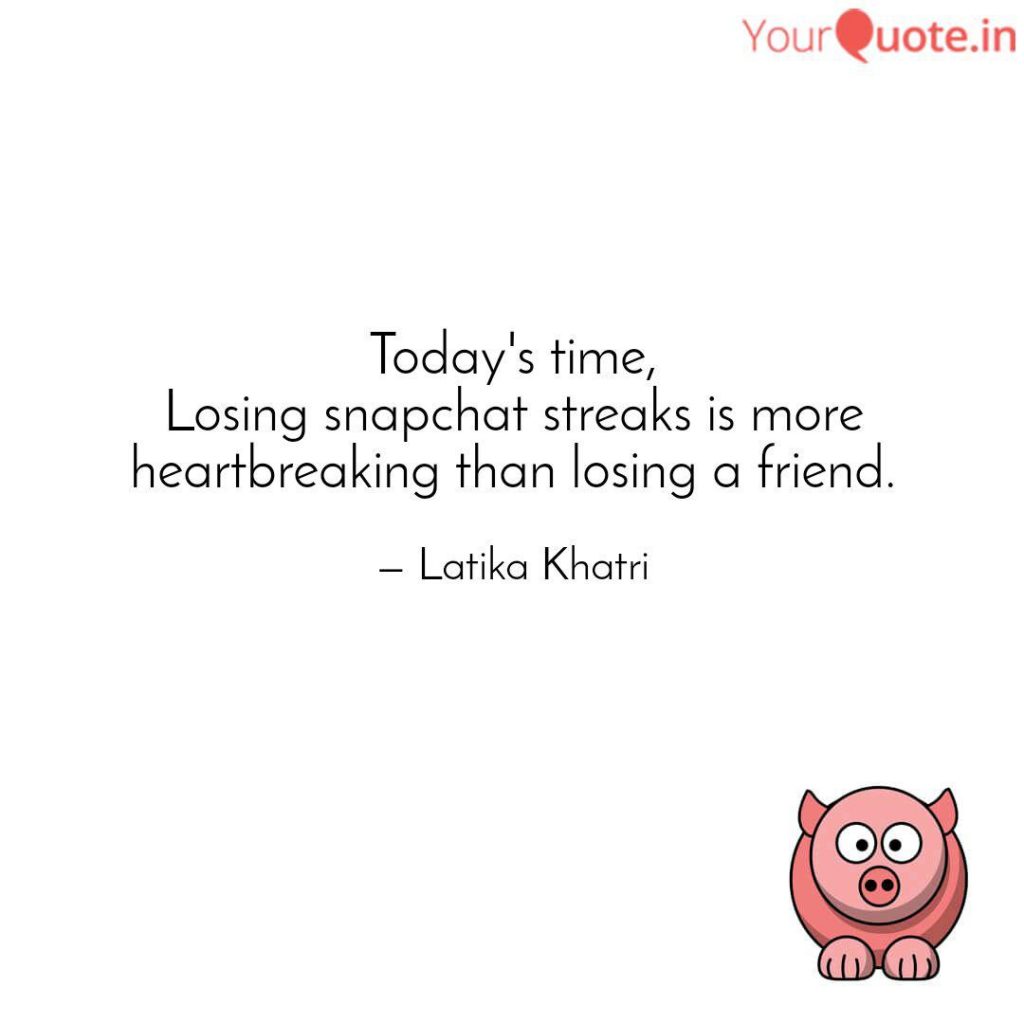
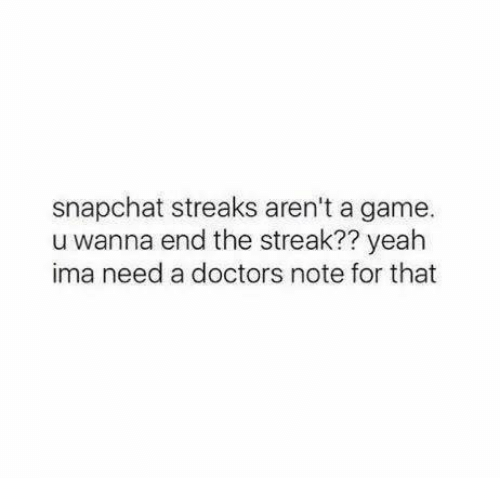
These two are posts that went viral among this audience. By the way, they’re not considered cool these days so don’t share them, unless you can face the risks.
What can we get out of this, Daniel?
I’ve mentioned in the beginning a project we’re working on right now. Making a mini-game that becomes a social effect like Snapchat is hard as you can’t really know what will click and what won’t. Trying, though, isn’t that hard.
Given that this project is targeting millennials as well, we’ll do our best to see what works and what blatantly fails. And I advise you to do so as well.
Why? If I’d have a psychology background, I’d link several studies. I’m not though so I can only tell you what my feeling says.
My feeling says it has a lot to do with dopamine and reward systems. And network effects. Brain stimulation reward, just like in rats. And by the way, I don’t think there’s anything wrong in that. It’s the same thing that happens when we see a shiny/sexy car that gets our attention, or why we like fruit/sugar treats.
There’s a reward in having that streak. There’s even social status, there’s proof of good standing in society. Having good relationships shows good standing in society.
Can you do it?
I think so. I think having in mind that reward systems are happening among us is the first step. Dare I say, half of the problem. That’s right, being aware is 50%. After that, it’s a matter of trial and error until you “get it right” — but other things have to be done beforehand (such as the utilitarian value) in order to have it going.
I’ll be happy to explain what we’re doing in the current project as soon as it’s done — probably in a follow-up of this post. A part 3/4/5…
Until then, let me know what reward systems work for you and whether you’re aware of this within your company?
P.S: Business people (as opposed to millennials) are not a different species. They’ve got their reward systems as well — they might react more to acronyms like ROI and not to ??, but they’re still humans ;).
About Ch Daniel
I run chagency, an experiences design agency that specialises on helping tech CEOs reduce user churn. We believe experiences are not only the reason why users choose not to leave but also what generates word of mouth. We’re building a credo around this belief.
If I’ve brought you any kind of value, follow me and get in touch here: LinkedIn | Twitter | Email
I’ve also created an infinitely-valuable app for sneaker/fashion enthusiasts called Legit Check that impacted hundreds of thousands over millions of times – check it out at chdaniel.com/app
Please share this with someone and subscribe to our newsletter!— helps us keep pumping content?


